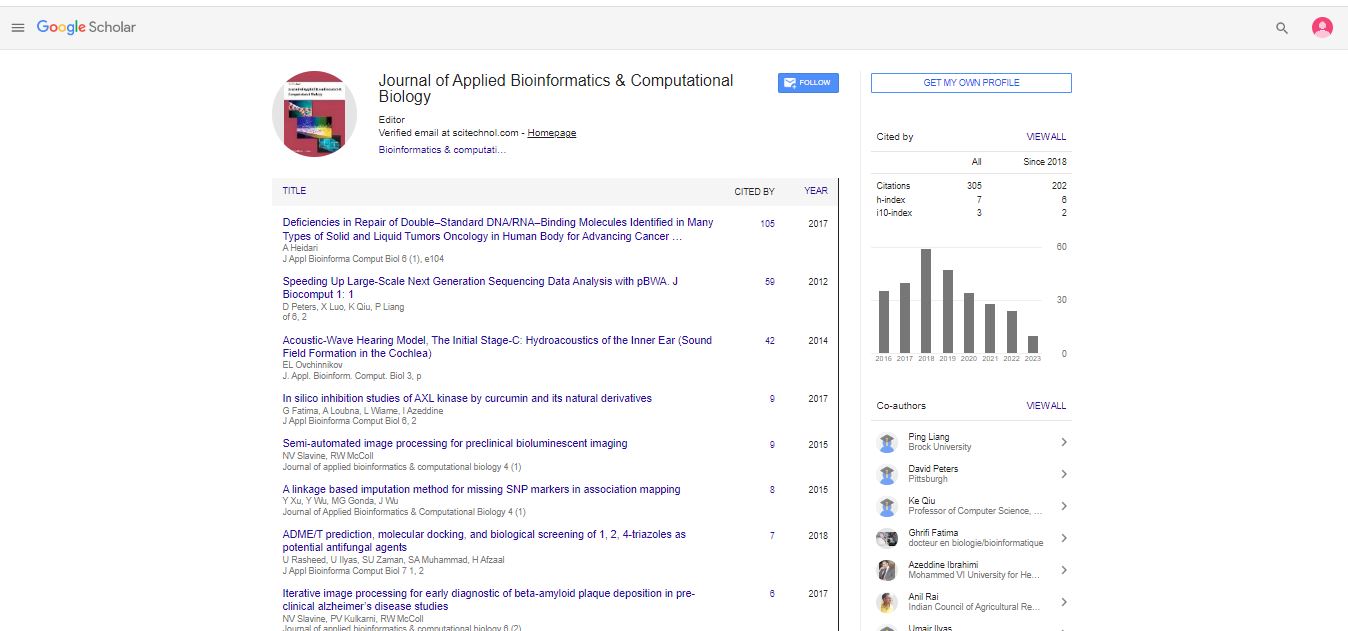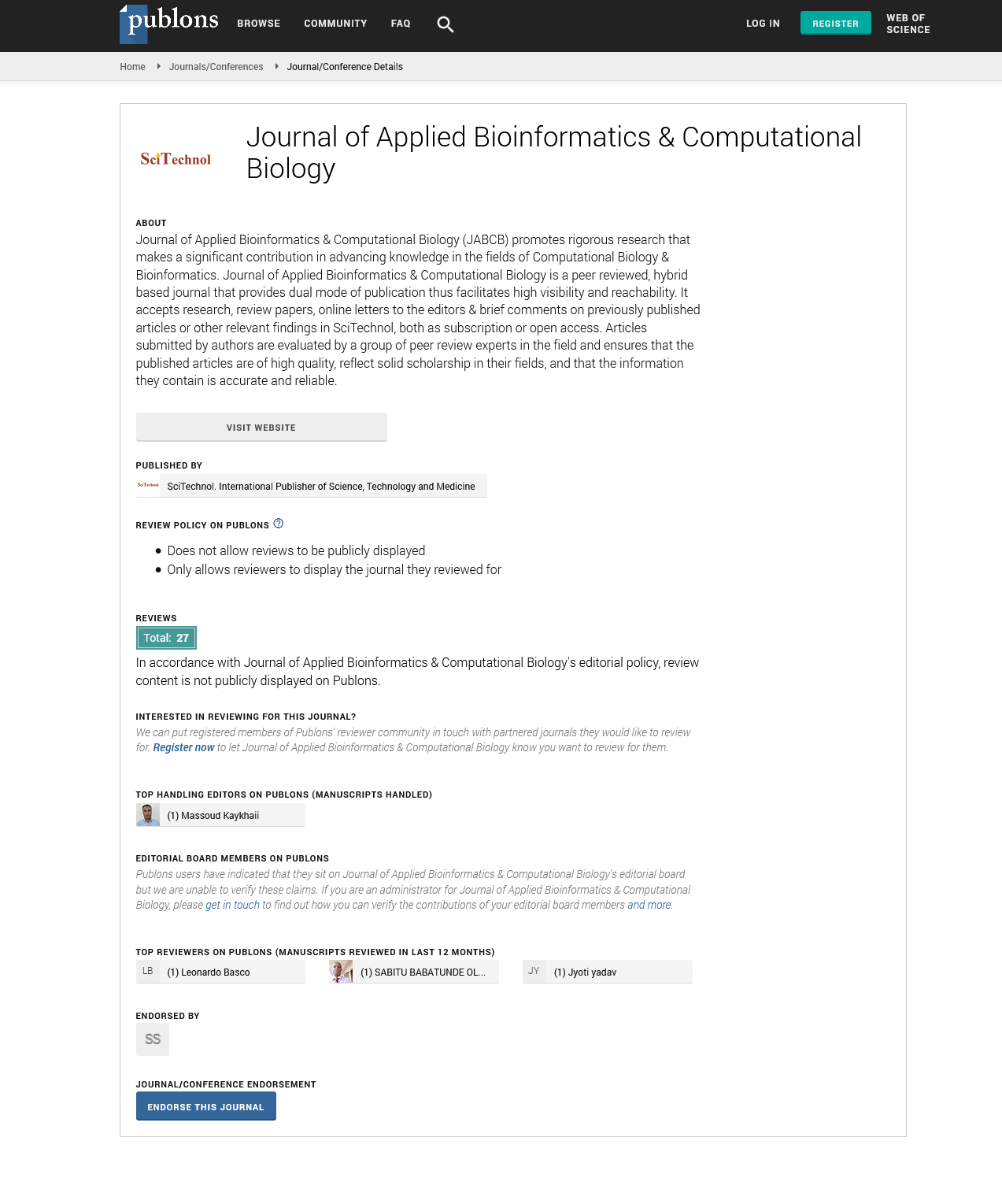Electrostatic interactions play key roles on the motions of molecular motors
Lin Li
University of Texas, USA
: J Appl Bioinforma Comput Biol
Abstract
Dynein is an important molecular motor which transports cargos along microtubules in the cell. Dysfunction of dynein leads to many serious diseases. Therefore, many efforts have been contributed to investigating the mechanisms of dynein’s motilities on microtubules. However, the large size of the dynein and microtubule system makes it extremely challenging to study the atomic details of the dynein’s motilities. Several computational approaches are developed and applied to study the dynein at different levels. Our simulations demonstrate that the long-range electrostatic interaction plays several essential roles during dynein’s motion. The electrostatic forces control dynein’s binding position and orientation in each step. The electrostatic binding energy funnel is found at the binding pocket, with the diameter of about 30 angstroms. Meanwhile, strong evidence indicates that the electrostatic binding affinity is also a key factor to determine dynein’s velocity and run length.
Biography
Lin Li completed his PhD at Huazhong University of Science and Technology in 2011. He worked as postdoctoral researcher at Clemson University from 2011 to 2016 and then worked as Research Assistant Professor at Clemson University from 2016 to 2017. Since 2017, he has been working as an Assistant Professor at the University of Texas at El Paso. His research focuses on Computational Biophysics. He has published over 30 peer-reviewed papers and has been serving as editorial board members of many journals. He has been invited to give presentations at many international conferences.
E-mail: lli5@utep.edu
 Spanish
Spanish  Chinese
Chinese  Russian
Russian  German
German  French
French  Japanese
Japanese  Portuguese
Portuguese  Hindi
Hindi 
